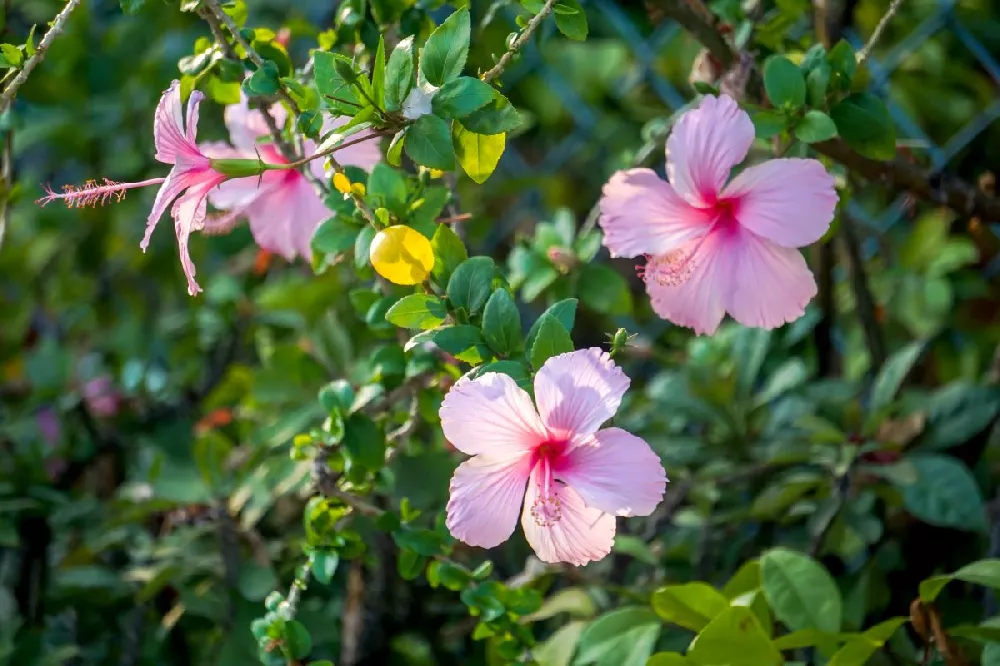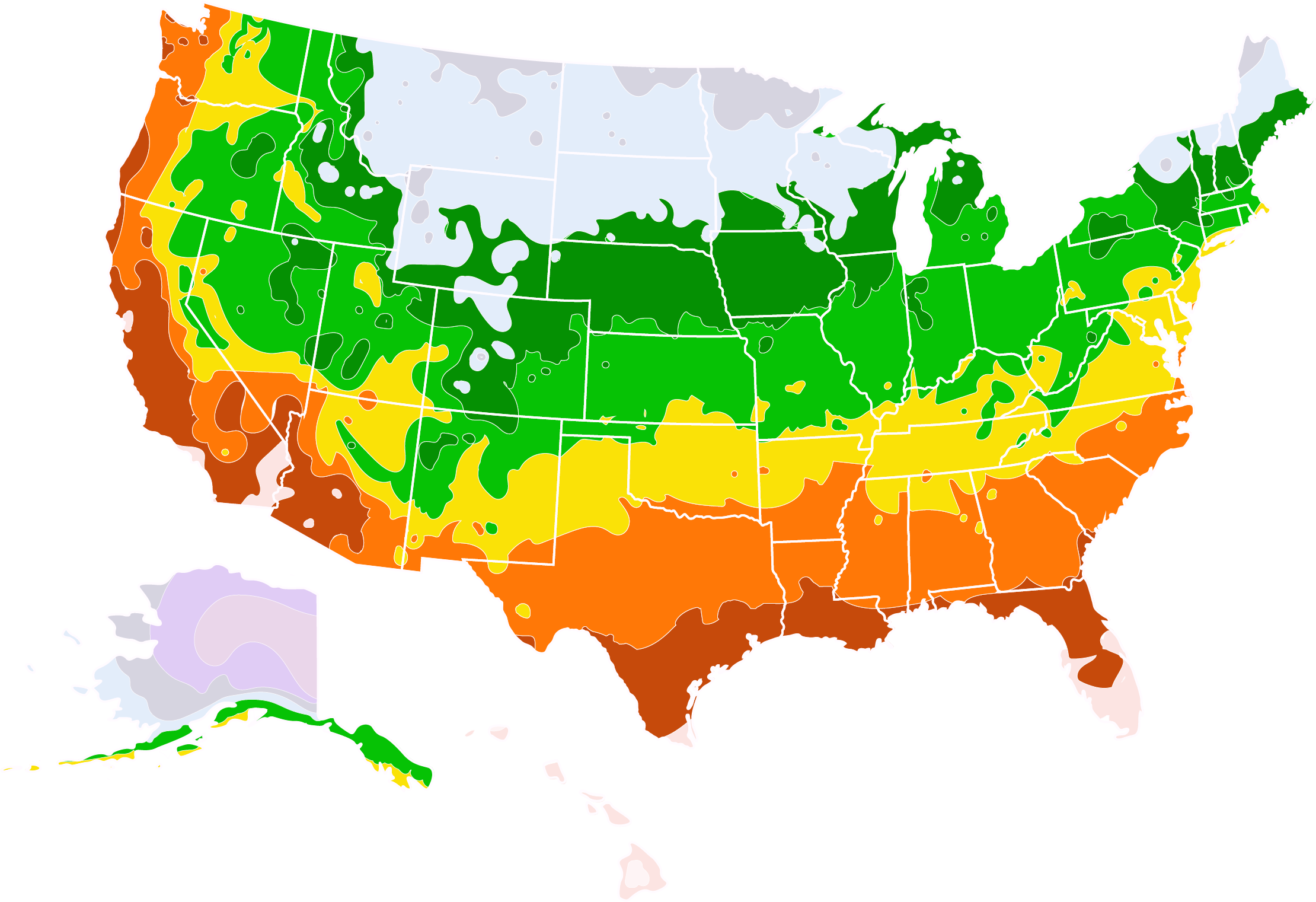Pink Tropical Hibiscus Tree for Sale - Buying & Growing Guide
What many gardeners want is a plant that will deliver beautiful blooms each year that also does not require much maintenance. With the Pink Tropical Hibiscus Tree or Hibiscus rosa-sinensis, that is exactly what you get. This plant is a small tree species that blooms with large bright pink flowers. It is also a plant that has minimal pest and disease issues, can adapt to containers and proves to be easy to care for, even for beginner gardeners.
- The Pink Tropical Hibiscus Tree has beautiful pink flowers.
- This plant is small enough to grow in containers.
- The Pink Tropical Hibiscus Tree has good pest and disease resistance.
Enter your zip code to find nearby stores that may carry this plant.
Plant Care
Sunlight
A Pink Tropical Hibiscus Tree can survive in partial shade, but it will perform best in full sunlight.
Watering
Water this plant weekly or more to maintain consistent soil moisture during the spring and summer months.
Fertilizing
Fertilize this plant once in spring with a balanced, all-purpose fertilizer.
Planting and Care
Planting instructions
Any gardener living in hardiness zone seven or colder should grow their Pink Tropical Hibiscus Tree in a container to allow for overwintering. The container you use should be at least twice as wide as the plant’s root ball and allow for good drainage. Those who live in warmer regions can plant their Pink Tropical Hibiscus Tree in a hole that is as deep as the root ball is tall and about twice as wide. In either situation, your Pink Tropical Hibiscus Tree will grow best in full sunlight and soils with good drainage.
Watering and nutrients
You’ll need to water your Pink Tropical Hibiscus Tree often to mimic the moist tropical environment to which it is well-suited to growing. Typically, this means you’ll need to water this plant at least once per week during the growing seasons. During the hottest parts of spring and summer, it is likely you’ll need to water this plant multiple times per week to maintain consistent soil moisture. To feed your Pink Tropical Hibiscus Tree, simply apply a balanced fertilizer once per year in spring.
Pollination
The Pink Tropical Hibiscus Tree is not only a beautiful plant in its own right, but it can also attract some fantastic pollinators to your garden as well. Most notably, both hummingbirds and bees are known to commonly visit this plant’s flowers to feed on the nectar. Since the Pink Tropical Hibiscus Tree is a self-fertile species, a single plant is capable of pollinating itself rather than relying on cross-pollination from a nearby plant. However, pollination is rarely a concern for gardeners who grow the Pink Tropical Hibiscus Tree since it does not produce an edible harvest.
Pruning
You should prune your Pink Tropical Hibiscus Tree using a set of sharp and sterile pruning tools during the mid-spring. When pruning, your first goal should be to remove any branch or stem that is dead, damaged or diseased. After that, you can thin the canopy to allow for better airflow and lessen the odds of moisture-related diseases. It’s often best for the appearance of this plant to remove lower branches and emphasize a single main trunk.
Pests, diseases and animals
The good news about the Pink Tropical Hibiscus Tree is that this plant typically has very few issues with pests and diseases. This is especially true if you select a growing location that is suitable for this plant and follow the straightforward care routine it requires. If you are able to give the Pink Tropical Hibiscus Tree conditions and attention it needs, you can expect it to live through its life without encountering significant infestations and infections.
Achieving maximum results
Anyone growing this plant in hardiness zone seven or colder must bring this plant indoors when the cold weather arrives. The Pink Tropical Hibiscus Tree can survive temperatures as low as 20 degrees Fahrenheit, but it is typically best to bring this plant indoors before the weather gets that cold. Once your plant is indoors, you should ensure that it continues to receive the moisture it needs. This means watering regularly and misting your plant if your indoor growing environment is dry, as many are.
FAQs
How tall does the Pink Tropical Hibiscus Tree grow?
When a Pink Tropical Hibiscus Tree grows outdoors in a favorable environment, it is possible for it to reach heights of 15 to 20 feet tall or more. However, most gardeners will likely never see their Pink Tropical Hibiscus Tree reach this height. It's typically necessary to grow this plant in a container, which almost always leads to a smaller mature size of about six to eight feet tall.
What are some other names for the Pink Tropical Hibiscus Tree?
The Pink Tropical Hibiscus Tree can go by several other names, which often leads to some confusion. For instance, the botanical name of this plant is Hibiscus rosa-sinensis. Additionally, this plant also has several other common names. Those common names include but are not limited to, Hawaiian hibiscus, Chinese hibiscus, China rose and shoeblack plant. If you hear any of those names, know that they refer to the same plant known as the “Pink Tropical Hibiscus Tree.”
What do the flowers of the Pink Tropical Hibiscus Tree look like?
The flowers of the Pink Tropical Hibiscus Tree are this plant's most noteworthy ornamental feature. As the name suggests, these flowers are a bright shade of pink. They consist of several large petals that encircle a center point, out of which grows a prominent spike-like flower structure that shows shades of both pink and gold. These flowers are not only spectacular to look at, but they are often long-lasting as well.
Compare Similar Products
You can't add more Product Name - Product size to the cart.
OK








